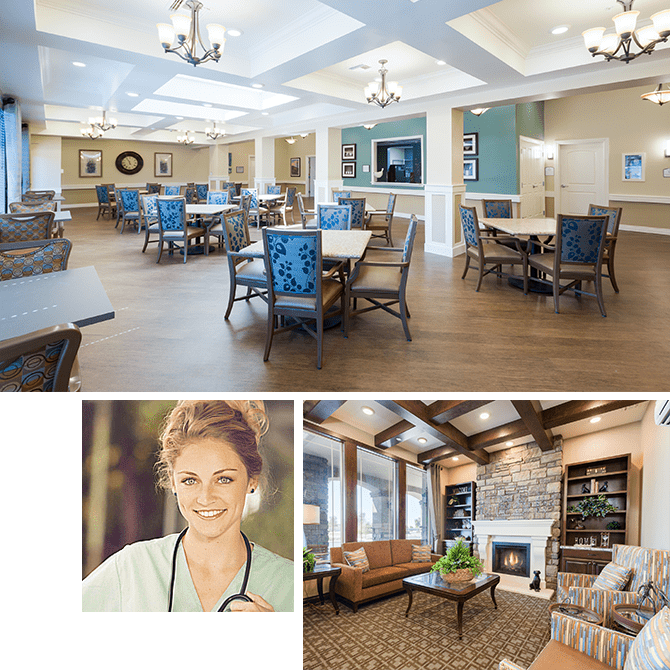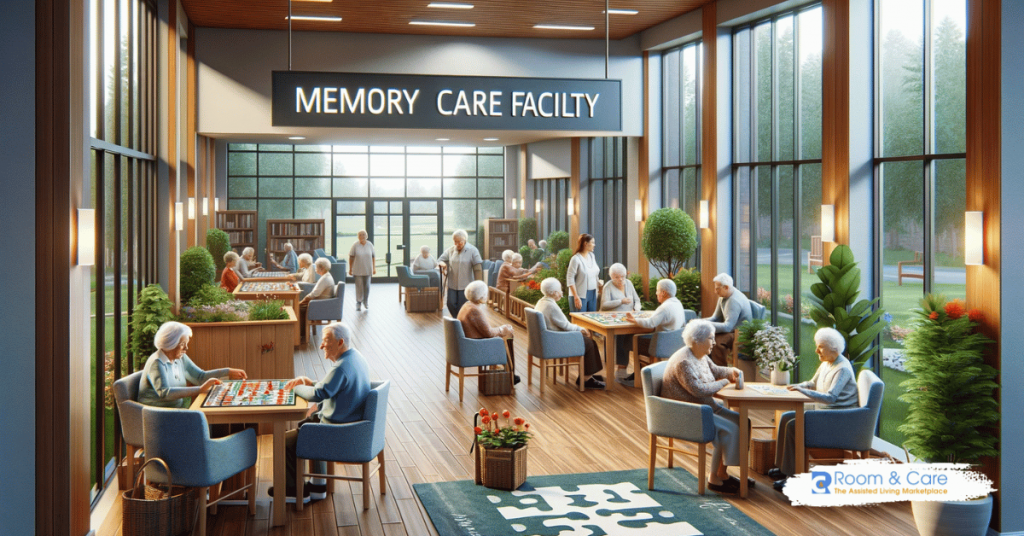Discover Charlotte Memory Care: Compassionate Senior Care Services
Discover Charlotte Memory Care: Compassionate Senior Care Services
Blog Article
Producing a Safe and Helpful Setting: In-Home Memory Care Essentials
Developing a caring and safe and secure environment for individuals calling for at home memory care is extremely important to their health and lifestyle. From making sure security within the home to utilizing efficient communication strategies and applying memory-friendly design elements, there are crucial components that add to an all natural treatment technique. By concentrating on producing an encouraging ecological community that satisfies the distinct needs of those with memory impairments, caretakers can substantially improve the everyday experiences of their loved ones.

Safe Living Setting
Producing a hazard-free and secure living setting is paramount when providing in-home memory care for individuals with cognitive disabilities. Making sure the security of the private with memory loss is essential to protect against mishaps and promote a sense of wellness.
Additionally, making use of modern technology such as movement sensors and alarm systems can signal caregivers if the specific wanders or is in distress. By prioritizing safety and security steps and removing possible threats, caregivers can provide a encouraging and secure environment for individuals with cognitive disabilities obtaining at home memory care.
Reliable Communication Methods
Applying customized communication techniques is crucial in fostering significant communications with individuals with cognitive problems in the context of at home memory treatment. Efficient communication plays an important function in developing an encouraging environment that enhances the wellness and lifestyle for people with memory problems. When interacting with someone experiencing cognitive decrease, it is crucial to make use of clear and easy language, maintain a calm and favorable tone, and offer visual cues to assist comprehension.
One key technique is to practice energetic listening, revealing compassion, perseverance, and respect throughout discussions. Non-verbal signs such as face expressions and body language can also help share understanding and assistance. Additionally, making use of reminiscence treatment by reviewing previous experiences or utilizing music and art can use long-term memories, boosting and stimulating links involvement.
In addition, including normal routines and constant communication patterns can offer a feeling of experience and security for individuals with memory impairments. By applying these communication strategies, caregivers can develop purposeful connections and promote a sense of comfort and rely on the in-home memory care setting.
Memory-Friendly Layout
Provided the relevance of producing a helpful setting for individuals with memory concerns via efficient interaction approaches, the incorporation of memory-friendly layout aspects in the space becomes important in maximizing their daily experiences and total wellness. Memory-friendly style focuses on enhancing safety and security, convenience, and self-reliance for individuals with cognitive impairments. Simple alterations can make a substantial difference, such as using contrasting colors to improve presence and minimize confusion, including clear signs to assist navigation, and decreasing mess to avoid sensory overload.
Incorporating familiar aspects from the individual's past, such as favored products or individual images, can stimulate positive memories and develop a sense of knowledge. Additionally, making certain adequate lights degrees, installing grab bars in shower rooms, and applying non-slip flooring can aid stop drops and injuries. Developing a soothing and discover this calming environment her response through the usage of acquainted scents, soft textures, and serene noises can likewise advertise leisure and minimize anxiety. By incorporating these memory-friendly design aspects, caregivers can supply a supportive and secure space that makes it possible for people with memory problems to preserve their self-reliance and top quality of life.
Daily Regimen Planning
When creating an everyday regimen for people with memory issues, careful planning is vital to support their cognitive feature and total well-being. Establishing an organized schedule can help in reducing anxiety, confusion, and disorientation usually experienced by those with memory impairments. Begin by integrating acquainted activities that line up with the individual's passions and choices. Consistency in everyday routines can give a complacency and security, helping in the preservation of cognitive capacities.
Adaptability is vital, as some days might need changes based on the person's mood and energy degrees. Frequently reviewing and adjusting the daily routine will help guarantee its performance in advertising a favorable and reassuring setting for individuals with memory obstacles.
Support System Implementation
Developing a durable network of supportive individuals plays a pivotal duty in improving the top quality of treatment and health for individuals needing memory assistance. Member of the family, friends, medical care professionals, and community sources can all add to producing a solid assistance system. Interaction amongst these individuals is important to make certain that the demands of the specific with memory difficulties are met successfully.
Member of the family are usually the primary caretakers and develop the foundation of the support group. They supply day-to-day treatment, psychological support, and companionship. When needed to avoid fatigue and ensure the ideal possible treatment for their enjoyed one., it is essential for household participants to seek aid and break.
Along with household assistance, including medical care specialists such as therapists, medical professionals, and nurses can provide customized treatment and support. These specialists can supply useful understandings, medical advice, and help in handling the individual's condition.

Verdict
Finally, producing a encouraging and secure setting for individuals with memory care demands is important for their health. By establishing a secure living environment, using efficient interaction approaches, including memory-friendly style elements, intending day-to-day routines, and carrying out a solid support group, caretakers can help improve the high quality of life for those with amnesia. These necessary components collaborate to produce a nurturing and empowering environment that promotes independence and enhances general quality of life.
Creating a hazard-free and secure living setting is vital when offering in-home memory care for individuals with cognitive problems. By prioritizing safety home measures and eliminating possible risks, caretakers can supply a supportive and secure atmosphere for individuals with cognitive problems obtaining at home memory care.
Developing a robust network of supportive people plays an essential role in enhancing the top quality of treatment and well-being for people needing memory assistance - Charlotte Memory Care. Interaction amongst these people is crucial to make certain that the demands of the individual with memory difficulties are fulfilled successfully

Report this page